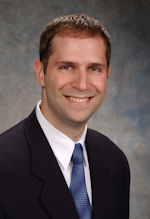US healthcare provider shares lessons of digital transformation
Innovation tends to accelerate when there is an urgent need for a solution. Many new technologies and processes for the offshore oil and gas industry were developed when COVID-19 emerged, and some of the solutions will be adopted permanently. It is interesting to think about how some of the companies that are struggling with business continuity in this era of heighted awareness of minimizing the impact of infectious disease, would have fared with certain systems and protocols already in place. Of course, no one could have predicted the impact of COVID on global economies, and hindsight is always 20/20. But perhaps an industry-wide culture of innovation centered specifically on a digital transformation could have mitigated the impact on the industry and accelerate the path to recovery. Further, innovation can increase revenue, reduce turnover, improve productivity, and drive competitive advantage. This was the underlying message from keynote speaker, Roberta Schwartz, executive vice president and chief innovation officer, Houston Methodist (HM) Hospital, at Endeavor Business Media’s virtual Petroleum Network Education Conference (PNEC) held this November.
Houston Methodist was founded in 1919 and has grown to over 5 million employees with many hospitals and clinics staged across Houston. It began its digital transformation journey in early 2018, and those early efforts have served it well during the COVID pandemic. The journey began with a group named “Digital Innovation Obsessed People” of about 20 employees. Enlisting was open invitation, but Schwartz described the team members as like-minded embracers of digital transformation. The intent of the group was to foster a culture of innovation and embrace digital technologies. In parallel, a technology hub was formed where developers could test technologies, funds were being allocated for the development of telemedicine, and senior executive commitment was secured.
The hospital witnessed two surges of COVID this past year, one from March until May, and then from late May/early June. So, when the virus emerged, the hospital was ready to fast-track the implementation of many of the technologies that it had developed in advance, including telemedicine. Some of its competitors had not yet developed this capability. The hospital progressed its telemedicine utilization from less than 5% to about 80% when all clinics were shut down due to the virus. When the clinics reopened, utilization normalized at between 30 and 40%. This is, and will continue to be, an important mechanism for patient and physician communication.
The hospital also rolled out a digital care pathway that sends text message reminders to patients before and after surgeries. Schwartz compared this system to the text alerts that air travelers receive. This has resulted in a 30% reduction in a patient’s length of stay at the hospital, a 50% reduction in readmissions, and an increase in patient satisfaction. HM also use this technology for COVID patients that are feeling isolated, and for contact tracing. Admitted patients have tablets for virtual visits with doctors and to help stay in contact with family, and rooms are equipped with Amazon Alexa devices for entertainment and access to nurses.
Next on the horizon for the hospital is voice activation technology, more use of artificial intelligence, and predictive analytics. Schwartz shared one example where predictive analytics was used at HM’s virtual ICU to predict that a patient was about to go into arrest before it happened.
These and other important lessons on developing a culture of digital innovation can be learned from the healthcare industry and I would encourage readers to view Roberta’s full on-demand presentation from this year’s PNEC at pnecconferences.com.
There have been some early adopters of digital technologies in offshore oil and gas as well, while COVID has spurred a wave of new tools and technologies. See Offshore’s digitalization section inside for the latest innovations and case studies.




